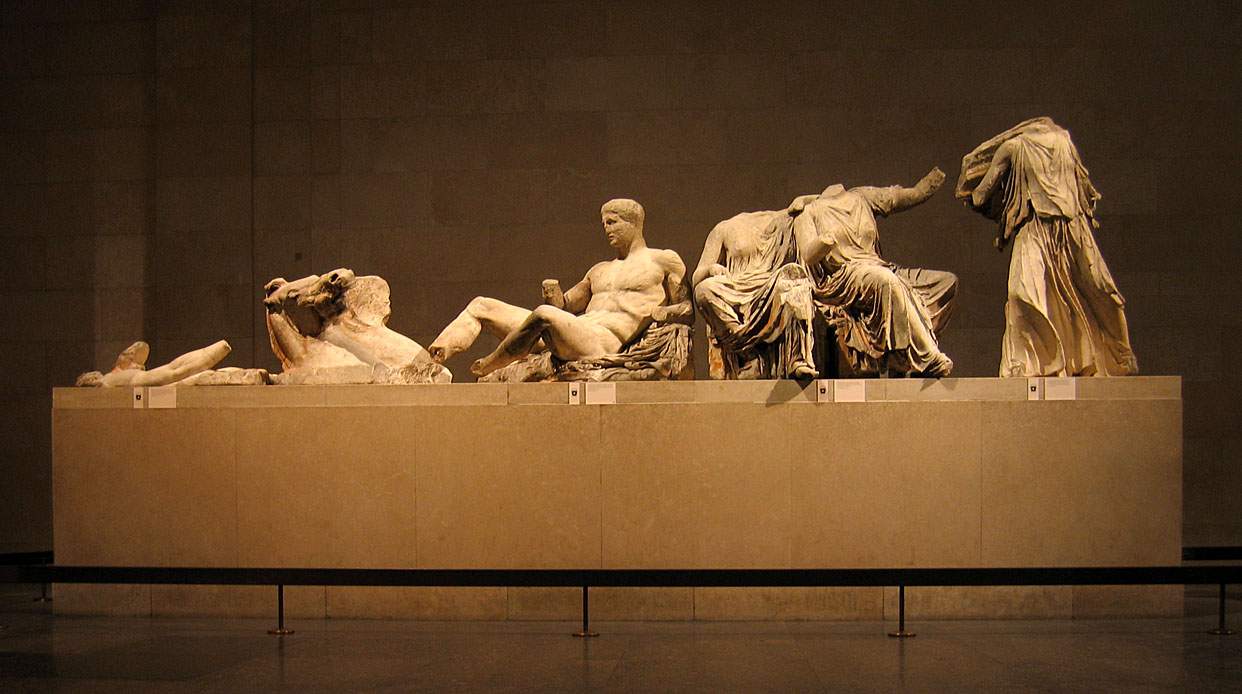From Boris Johnson a sharp "no" to returning Parthenon marbles to Greece
The Parthenon marbles kept at the British Museum will remain in London: this is the official position of British Prime Minister Boris Johnson, who was interviewed on March 12 by the Greek daily Ta Nea regarding the possibility of the marbles being returned to Greece. The Parthenon decorations, also known as the Elgin marbles after Thomas Bruce, Earl of Elgin, who in 1811 obtained permission to remove them to take them to England (where they were purchased by the British government in 1816 and transported to the London museum), are the subject of a long-standing dispute between the United Kingdom and Greece, with Athens hoping to bring them back in time for the 200th anniversary celebrations of Greek independence, which will begin in 2022.
“I understand the feelings of the Greek people,” Johnson said in the interview, “but the U.K. government has long held a firm position on these sculptures, which were acquired legally by Lord Elgin under the laws of the day and are therefore rightful property of the British Museum since their acquisition.” The point insisted upon by those pressing for the return of the marbles to Greece, however, is the fact that at the time the country was not independent but was held under the yoke of the Ottoman Empire (Greece was a province of the empire), and consequently the departure of the marbles took place without the Turks caring about the opinion and feelings of the Greeks regarding the sculptures. Greece also argues that Lord Elgin’s acquisition of the marbles occurred illegally.
The Greek minister of culture, Lina Mendoni, on March 13 immediately responded to Johnson’s words with an official note, citing new data that, in her opinion, would prove that the marbles were acquired in a way that was not legal. “After carefully reviewing the statements of British Prime Minister Boris Johnson,” says Mendoni, “it is clear that he was not properly informed by his country’s cultural services about the new historical data concerning the occupation of Greece by the Ottomans, which show that there was never a legitimate acquisition of the Parthenon sculptures by Lord Elgin and that, as a result, the British Museum never acquired the sculptures in legitimate ways. The Ministry of Culture and Sports can provide the necessary documentary evidence to inform the British people that the British Museum owns the sculptures illegally. For Greece, the British Museum does not have legal ownership of the sculptures. The Parthenon, a symbol of UNESCO and Western civilization, reflects universal values. We are obliged to work in this direction.”
The vice-president of the European Commission, Greece’s Margaritis Schinas, also intervened closely on the matter, saying in a tweet that “the marbles belong to the Parthenon. In these difficult times, universal cultural heritage should elevate humanity, not divide it.”
The marbles in the possession of the British Museum are a set of important sculptures that, taken together, reach about 80 meters in length (half the length of the friezes carved in the fifth century B.C. to decorate the great temple on the Acropolis in Athens). Lord Elgin, who was British ambassador to Constantinople between 1799 and 1803, always claimed that he removed the Parthenon marbles on the basis of permission from the Turkish authorities, but Greece disputes this version of events. Moreover, during the transport from Greece to England, the marbles also suffered several damages, and even at the time the operation caused an uproar (so much so that George Byron came out strongly in favor of Greece). The request for the return of the marbles by the Greek authorities is very long-standing: the first requests started in 1832, as soon as the War of Independence that saw Greece victorious over the Ottoman Empire ended. But the British Museum has always refused to consider Greece’s arguments. One of the last and most important episodes in the querelle was in September 2019, when the Greek prime minister, Kyriakos Mitsotakis, had asked the United Kingdom to grant the marbles at least on loan for the 200th anniversary celebrations of independence: in return, Athens would grant some ancient works that never moved from Greece. London’s response was again very dry: the loan would be made on the condition that Greece would acknowledge British ownership of the marbles. And to think, according to a 2018 YouGov poll, 56 percent of Britons supported the return of the Parthenon marbles to their home country.
Pictured: the Parthenon pediment sculptures, east side, preserved at the British Museum. Ph. Credit Andrew Dunn
 |
| From Boris Johnson a sharp "no" to returning Parthenon marbles to Greece |
Warning: the translation into English of the original Italian article was created using automatic tools. We undertake to review all articles, but we do not guarantee the total absence of inaccuracies in the translation due to the program. You can find the original by clicking on the ITA button. If you find any mistake,please contact us.





























